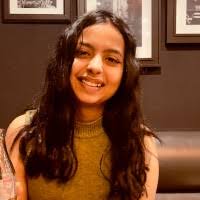Understanding Neurodiversity and Gender Identity



The Intersection of Autism and LGBTQ+ Identities
In recent years, there's been a growing recognition of the complex interplay between autism spectrum disorder (ASD) and LGBTQ+ identities. This fascinating intersection has caught the attention of researchers, clinicians, and advocates alike, shedding light on the unique experiences and challenges faced by individuals who identify with both communities.
As we explore this topic, it's important to remember that autism is a spectrum, with infinite variations and individual experiences. No two people's journeys are exactly alike, but understanding the common threads can help us create more welcoming and supportive environments for everyone.
Research has shown that individuals with autism symptoms are more likely to identify as LGBTQ+ compared to the general population. A 2018 study published in the Journal of Autism and Developmental Disorders found that autistic individuals were 3-6 times more likely to identify as gender diverse compared to their neurotypical peers. But why might this be the case?
One theory suggests that individuals with high-functioning autism may be less influenced by societal norms and expectations when it comes to gender and sexuality. The characteristic autistic traits of thinking outside the box might extend to how they perceive and express their gender and sexual identities. This could lead to a greater openness to exploring diverse identities and a reduced adherence to traditional gender roles.
Another factor to consider is the tendency of those with neurodivergent brains towards intense interests and deep dives into specific topics. For some individuals on the spectrum, this might manifest as a thorough exploration of gender and sexuality, leading to a more nuanced understanding of their own identities.
However, it's crucial to note that having autistic traits doesn't cause someone to be LGBTQ+, or vice versa. These are simply two aspects of human diversity that can coexist and interact in interesting ways.
For those who do identify as both autistic and LGBTQ+, navigating these intersecting identities can present unique challenges. Social communication difficulties associated with autism might make it harder to connect with LGBTQ+ communities or express one's identity. On the flip side, sensory sensitivities might make typical LGBTQ+ spaces, like loud pride parades or crowded bars, overwhelming for some autistic individuals.
Despite these challenges, many people find strength and pride in embracing both their neurodiversity and their LGBTQ+ identity. Online communities have become valuable spaces for connection and support, allowing individuals to share experiences and find acceptance.
As our understanding of both autism and LGBTQ+ identities continues to evolve, it's crucial that we create more welcoming spaces and support systems. This might involve:
- Providing autism-friendly LGBTQ+ events and spaces
- Offering specialized support for autistic individuals exploring their gender and sexuality
- Training healthcare providers and therapists in the unique needs of this intersectional community
- Promoting representation of autistic LGBTQ+ individuals in media and advocacy efforts
As we strive for greater understanding and acceptance, tools that help identify neurodivergent traits can play a crucial role. One such innovative solution is Simon AI, a groundbreaking tool that can objectively identify autism and ADHD signs from just a 60-second voice sample. By leveraging artificial intelligence, Simon AI offers a quick and accessible way to gain personalised insights into potential neurodivergence, which could be particularly valuable for LGBTQ+ individuals who may be exploring multiple aspects of their identity.
In conclusion, the intersection of autism and LGBTQ+ identities represents a rich mosaic of human diversity. By fostering understanding, creating welcoming spaces, and utilizing cutting-edge tools like Simon AI, we can better support individuals navigating these intersecting identities. As we continue to learn and grow, let's celebrate the unique perspectives and experiences that arise from this beautiful intersection of neurodiversity and gender and sexual diversity. Autism awareness within the LGBTQ+ community is crucial for creating truly welcoming spaces for all.